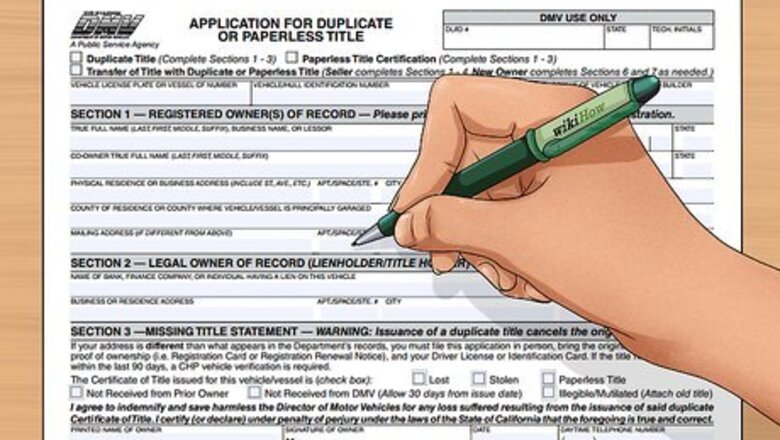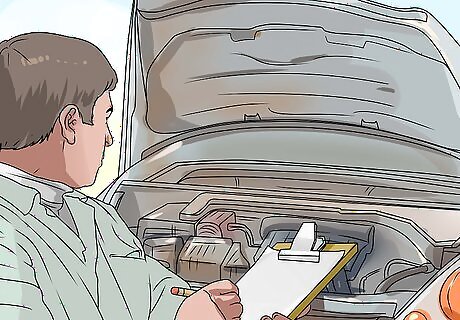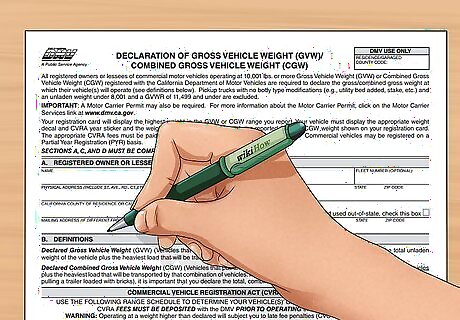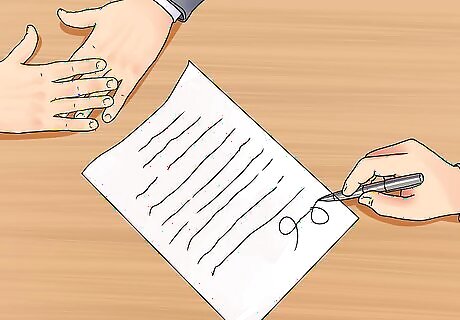
views
- Download the CA DMV’s Form REG 227 and call 1-800-777-0133 to request a copy of Form REG 262. Then, fill each form out.
- Get a smog certification if your car isn’t exempt and have your car inspected. Check if you need to fill out any other miscellaneous forms.
- Review your forms with the buyer, take them to the DMV, and pay any required fees. Report the transfer while you’re there, or do it on the DMV’s website.
Gathering What You Need

Get the official DMV transfer forms. When a car changes ownership in California (whether by being sold or by being inherited, given as a gift, etc.), the DMV considers this a "transfer." The DMV uses certain forms to document transfers. You'll need official copies of the following forms to legally complete the sale: California Application for Duplicate Title Form REG 227. You can download and print this form online here. If you have your original title, you can just use that; you don't need a duplicate title form. Vehicle/Vessel Transfer and Reassignment Form REG 262. This form isn't available online because it is printed on special security paper. To get it, you need to call the DMV at 1-800-777-0133 and request to have a copy mailed to you. If you do not need to disclose the odometer reading (car older than 10 years), you may download and print a Bill of Sale REG 135 (PDF) form or a Power of Attorney REG 260 (PDF) form.

Be prepared to provide smog certification if your car isn't exempt. Selling many cars requires up-to-date certification from a STAR smog test station. You can search for STAR stations near you here. Smog certifications are valid for 90 days — you must complete the sale within this time or get re-tested. Note, however, that many cars do not need smog certification when sold. Cars that do not need to be tested include: "Hybrid" cars Cars that run on diesel Cars that run on electricity Cars that run on natural gas Cars less than four years old Cars made before 1975

Be prepared to have your car inspected. The vast majority of consumer guides recommend buyers to have the car they plan to purchase inspected by a licensed technician before exchanging any money for it. It is typically the buyer's responsibility to pay for the inspection or perform it personally. However, it's still your car at this point, so you may need to work out an arrangement to accommodate the buyer's request. Consider getting a mobile inspection service to inspect the car on your property if you don't want to go to the trouble of taking it to a mechanic. Be sure to keep all documentation from the inspection — especially if the mechanic finds an issue that may be cause for concern.

Be prepared to pay a few minor fees. Depending on the specifics of your situation, the fees you and the buyer may need to pay can vary. The fees you owe are determined when the transfer application is submitted to the DMV. These may include, but are not limited to: Transfer fee ($15 plus tax). This is paid by the buyer. Use tax (depends on the county and city) This is paid by the buyer. Duplicate title fee

Obtain miscellaneous forms under certain special circumstances. For most car sales, the forms above will be sufficient. However, some situations call for extra documentation. See below: If you are selling a commercial vehicle, you may need Declaration of Gross Vehicle Weight/Combined Gross Vehicle Weight Form Form REG 4008. If you are selling to a family member, you need Statement of Facts Form REG 256. If your car is under a lien, you will need the lienholder's release notarized. Note also that there are sections on the transfer forms above for the lienholder to sign. If your name is misspelled or printed in error on your car title, you will need Statement of Error or Erasure REG 101 (available here). If your car is missing a license plate, registration stickers, or other important documentation, you will need Application for Replacement Plates, Stickers, Documents Form REG 156 (available here).
Making the Sale

Fill out all required forms. Download the Original California Certificate of Title Video and print the forms in the section above that you need. Call the DMV to request Form REG 262, making sure to allow enough time for it to arrive in the mail. If your car is under a lien, this is a good time to get the lienholder's release (as well as his or her signature on the transfer forms).

Review and sign the forms with the buyer. This is your chance to clarify any misunderstandings and work out any differences of opinion. The most important thing to review and agree on is the price of the sale (documented on REG 227), but it's a good idea to go over all of the documents together to ensure total agreement. In addition to completing the forms together, you will also need to sign your car's title to confirm that you release ownership of it.

Don't forget to disclose the odometer reading. Because the number of miles a car has traveled can affect its monetary value, this information is critical. Be sure to record the odometer reading on REG 262 and the title and make sure the buyer sees and understands the reading. Falsifying this information, failing to disclose it, or tampering with the odometer is a crime. However, you don't need to do this if the vehicle is 10 years old or more.

Submit all forms to the DMV. When you and your buyer have reviewed all of the paperwork, give it to an associate at the DMV. Your transfer request will be registered and logged in the official records.

Report the transfer to the DMV. As the seller, you have five days to report the transfer. Luckily, you can do this online here, or at the DMV when you submit your paperwork. You will need the car's license plate number, the last five digits of the VIN, and the new owner's name and address. The buyer must also report the transfer of the car. However, s/he has 10 days.




















Comments
0 comment